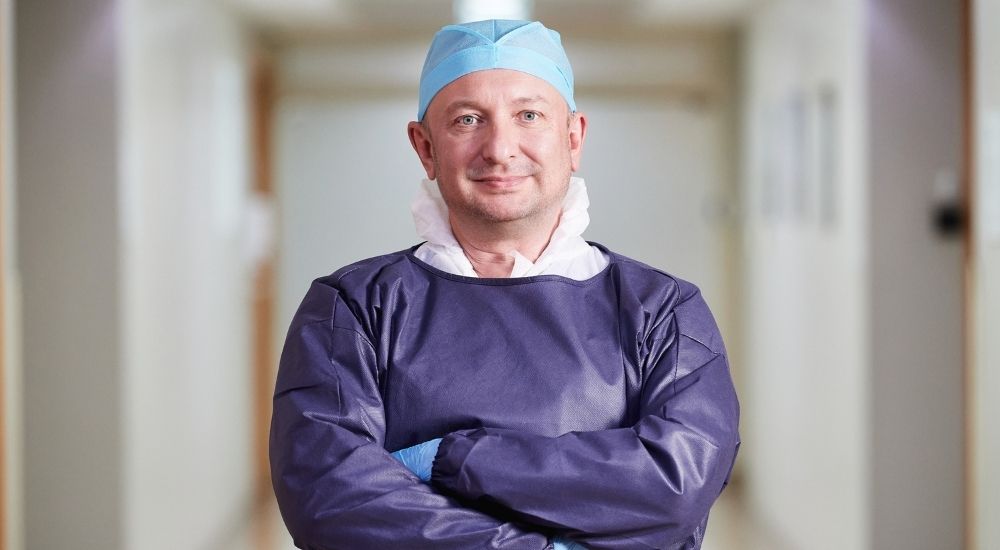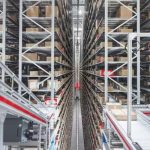When doctor became patient, story of how an ICU doctor at Al Ain survived Covid-19

Dr David Simon has been working with infectious diseases for more than 25 years. Yet nothing prepared him for the ordeal of treating Covid-19 patients or his own harrowing experience of contracting the disease.
Dr Simon is a Critical Care Consultant and Head of Intensive Care Unit at Mediclinic Al Ain Hospital, a position he has held since 2015. The 48-year-old Hungarian is one of thousands of frontline professionals who have been recognised and supported by the Frontline Heroes Office for taking exceptional measures to protect people’s wellbeing during the pandemic.
Even with his extensive experience treating critical-care patients, the scale and rapid spread of Covid-19 came as a shock.
“This was something brand new and completely unprecedented,” he said. “When Covid-19 swept across the world in early 2020, it was a biological catastrophe. In the medical profession, we could only react to the virus as it happened. We didn’t have a specific drug or approach; we didn’t have a ventilation strategy or other necessary procedures.”
Dr Simon rapidly developed and fine-tuned a strategy for treating the increasing number of patients admitted to ICU, as well as sharing his experience with medical colleagues around the world. He praises the Department of Health – Abu Dhabi, DoH, for its continuing guidance and support.
In the early stages of the pandemic, Al Ain’s Covid-19 patients were treated at government hospitals. But as cases grew, teams including Dr Simon’s were asked to provide support. In April 2020, he extended his ICU unit, adding 12 beds and dedicating almost all his staff to Covid-19 patient care.
“We were working around the clock and it was a case of all hands-on deck to help these patients who were desperately ill,” he said. “We were able to accurately assess the patient flow, but there was no such thing as a typical patient. They were all ages and nationalities and the virus affected everyone differently.
“I would see senior women in their nineties pass through easily while some younger men in their thirties were close to death. There was one man on a ventilator for three months with a tracheostomy who luckily survived. Of course, I was exhausted, but the experience of helping patients and seeing the success stories, bringing patients off the ventilator, pulling out the tube and sending them home kept me going.”
Then, in May 2020, Dr Simon’s life turned on its head as he went from doctor to patient, an experience he described as terrifying.
“It was a typical picture of Covid-19: I had opacity on my lungs, meaning that the virus had begun destroying a part of my lung tissue and I was feverish and exhausted,” he said.
“Honestly, I was terrified because it progressed so quickly. The weakness I felt was unlike anything I had ever experienced. I couldn’t even move two metres to the bathroom. But I still sat up in bed and took part in conference calls when I felt stronger.
“I didn’t see my teenage children or my wife, who is an anaesthetist. They would only call me on the phone. It was claustrophobic being in that small space and I felt cut off from everyone. It was a strange time for me, being the patient.”
“I would say the most important lesson for humanity to take from this crisis is taking responsibility for their own bodies”
Dr Simon made a full recovery and after a two-week period of home quarantine returned to work. He said that contracting the virus made him even more empathetic in his job.
“When I spoke to patients, I knew what they were going through,” he said. “Recovering also helped me deal with their families emotionally, which was one of the toughest parts. Covid-19 patients were not allowed any visitors so we were responsible for meeting the families every day to report on their loved ones. If a patient’s condition was worsening, that was particularly hard to do. Once I could tell them that I myself had recovered, it made things much easier.”
During June last year, it was announced by the DOH that Mediclinic Al Ain Hospital was free of Covid-19 cases for the time being, allowing Dr Simon to reflect upon what had happened during the previous few months.
“I would say the most important lesson for humanity to take from this crisis is to take responsibility for their own bodies,” he said. “If you don’t look after your own health, then who will? Covid-19 affected my entire life both personally and professionally. I was caught right in the middle and I will never forget this period, nor do I want to.”
The Frontline Heroes Office seeks to strengthen community support and show appreciation for frontline professionals including Dr Simon who continue to sacrifice their own wellbeing to keep the nation safe.





